This post may contain affiliate links and Corporette® may earn commissions for purchases made through links in this post. As an Amazon Associate, I earn from qualifying purchases.

2020 Update – We still stand by these insurance tips for young women lawyers — but stay tuned for an update soon!
What kind of insurance do young working women need? Reader D wonders what the best insurance tips are for young women lawyers. Here's her question:
Kat, I'm wondering if you would consider a post about certain types of insurance such as life insurance, disability insurance, and umbrella policies? I'm wondering how people decide on buying additional insurance beyond what may be included in work benefits?
Great question! (Pictured: Tiffany & Co. Coin Purse, available for $85.) Personally, I've had:
- renters' insurance (when I was renting)
- condo insurance (since we bought a condo)
- personal articles insurance (since I got my pearls, watch, and engagement ring — if memory serves each of those items is valued above what is normally included in renters/condo insurance)
- term insurance (for both me and my husband, since we became parents — we bought a 20-year term and each have coverage for a bit more than what's owed on our mortgage)
Obviously, we've always had health insurance as well; it's currently through my husband's job. (And if we owned a car, we'd have car insurance as well.) The main thing that I wished I had done was to space out the different insurance payments a bit more — for some reason they are all due in the fourth quarter, and I always feel like money is flying out the window to State Farm. As a business owner I should probably investigate more insurance, but I haven't quite gotten around to it yet; we also should probably buy disability insurance.
(Psst: in honor of the original title of this series, Tales from the Wallet… here's a wallet!)

Poking around the web, I found a few good articles from experts with insurance tips for young women lawyers:
- What Kind of Insurance Do You Need? [Daily Worth]
- The Insurance You Don't Want to Think About (But Really Should) [The Daily Muse]
- Life Insurance Primer for Beginners [Lifehacker]
Readers, what kind of insurance do you personally have? How (and when) did you decide to get more insurance? What are your best insurance tips for young women lawyers?
2020 updated images (umbrellas in the sky) via Stencil.
These are some of our latest favorite financial books for beginners:

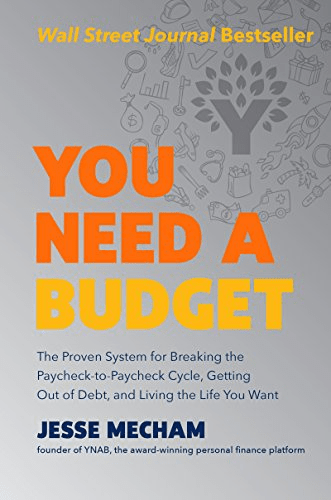
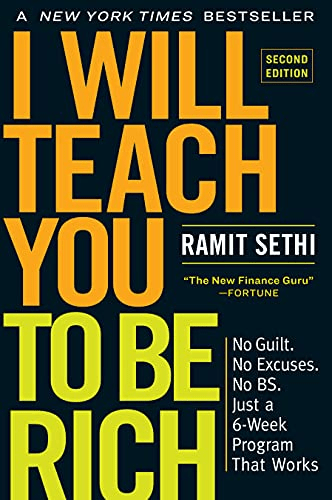
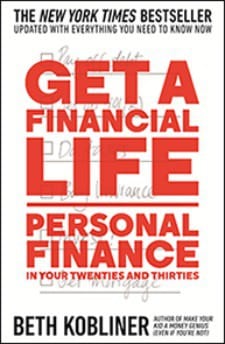
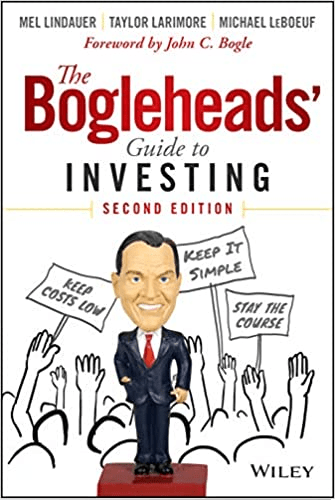
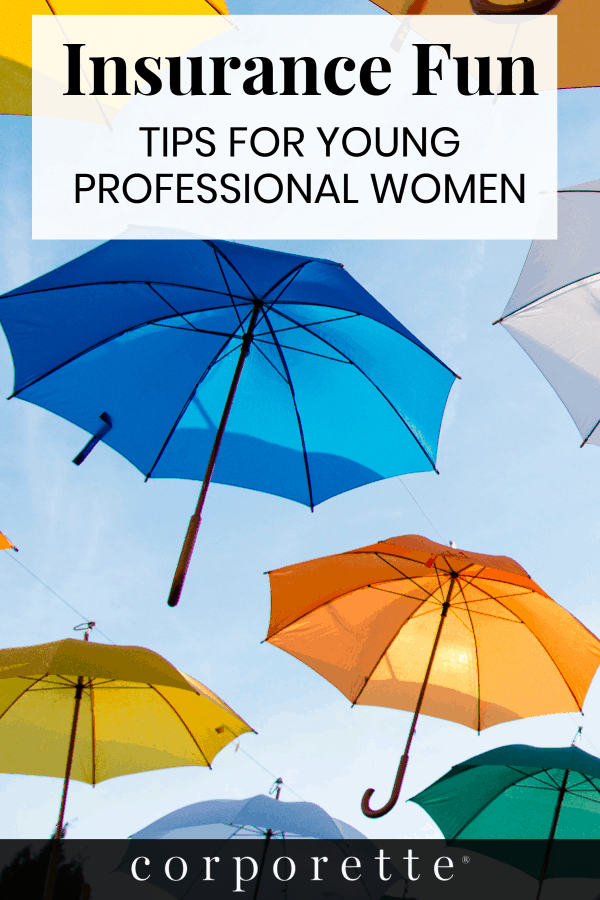


Anonymous
For absolutely sure, get disability insurance. You are statistically more likely to need this than life insurance. It protects your income in the case of disability from disease or accidents. If you can, pay for it yourself (versus allowing your company paying for it) – it is taxed differently and may be tax-free if you pay for it yourself. Making it as tax-efficient as possible can be a significant benefit to you.
BB
Totally agree on this. I have no kids (or plan to have kids) and a working husband, so life insurance is less important for me. I do, however, have not a lot of savings (thanks, grad school) and high earning potential. I bought extra disability insurance from my employer (an upgrade from the standard level) to protect that earning potential.
Mpls
Yes. Do this. If you pay for the premiums with after tax money (can still be a deduction on your paycheck) then you do NOT pay tax on the benefit (the money you get paid while on disability leave). If you pay for the premium pre tax, or someone else pays the premium, then the benefit is considered income and you are taxed on it.
MH
Look into short-term disability (hopefully offered by your employer) as well, if you’re considering getting pregnant. You need to sign up 9 months before you take any benefits, but if you are already signed up once you get pregnant, you can get a pretty good chunk of change when you’re on maternity leave.
Curious
How does short term disability work? Does it have to be offered through your employer? Where do you get it if not through your employer? Can you collect it if you have sick leave or vacation time? I don’t get maternity leave at my company but we are permitted to use all our accrued time off – both sick and vacay – which in my case would amount to ~3-4 months. Would I have to first use up all this time to use s/t disability? Can I use them jointly? TIA!
MH
So, I haven’t used it yet, but I spoke with HR about it. My employer partners with a carrier to offer a policy, but I have to pay all the premiums. I’m not sure how you get it if your employer does not offer it.
It is my understanding after speaking with my HR department that if I sign up for the policy and pay the premiums, I will get the disability benefits on top of any paid benefits I receive from my employer. Essentially, they work jointly. I would get my X weeks of paid leave, plus the short-term disability payments. I believe the policy my employer offers replaces 60% of my salary for 6 weeks.
Someone else may know more! I’m still trying to figure out the details and get an estimate of the premiums, because I plan on signing up during open enrollment next year.
Famouscait
Just looked into this issue myself, and I think it varies by policy. In my case, I can’t collect STD benefits on top of paid leave, but I am not required to use up paid leave before I can get the benefit. So right now, a maternity leave in 2014 for me would look like this:
8 weeks of accrued PTO + 4 weeks short term disability = 12 weeks FMLA leave
Also be aware that the policy will have a pre-determined of time you can receive the benefit for a vaginal vs. C-section birth.
Mpls
Check into the particular policy. Short term may not kick in right away – ours doesn’t kick in until you’ve been out for 30 days. Your benefit may also be reduced if you are receiving other income at time you are eligible, so check with the carrier to see what counts on that front. At least, that’s how it works with long term disability, so it may also apply for short term.
Lyssa
Hi Curious – I actually used to be a short term disability (or, as we say in the industry, STD – er, don’t say that outside of the industry) claims adjuster. All of your questions are really policy and employer’s policies dependent. In my experience, the largest number probably allowed you to use sick leave to make up the difference between what STD paid and cover time that it doesn’t pay, but not use it in addition to the time (that is, if the STD paid 60% of your regular salary – typical amount – you couldn’t take that plus your sick time to bring home 160% of your regular sal, but you could make up the difference), but not every company has that.
Word of warning for maternity – most policies only cover the time that you’d “need” to be out of work to recover, not a standard bonding leave. Usually that’s 6 weeks post delivery, and a little time beforehand if you have complications or have a particularly physical job. Some policies cover 8 weeks after a C, but that’s not standard. There’s also usually a waiting period of 1-2 weeks that aren’t paid when you start (think of it like a deductible). So, don’t expect to be able to have 3-4 months covered by a typical STD policy. (But every little bit can help!)
mascot
Given the high rate of unintended pregnancies each year, I think all women should seriously consider short term disability insurance.
Anonymous
Also, consider that if you or someone in your family becomes disabled and needs care – it’s not just that you need to replace income, you may need to pay for services you would otherwise not need. For instance, if you are diagnosed with MS, which is typically diagnosed at ages 20-50, you may need a paid caregiver at some point, which runs $40k for just 8 hours of coverage for weekdays. Assisted living is $80k. If your spouse works fulltime. . . you do the math. Extreme situation? Maybe. But it happens all too often.
kim
As for “how much do you need” in life insurance – I’m the main breadwinner, so I figure at least enough to pay off the house, cremate me, and pay hubby’s student loans, so the family (with kids) can be comfortable and not have to worry about paying the mortgage or moving in such a turbulent time. If your situation calls for it, add in costs of college. As for disability, I put that in the same bucket as long-term care (i.e. old age care) – I think I should probably buy it, but don’t feel like paying for it. I’ve heard that long term care insurance has a reputation for not paying out very much which adds to my hesitation – but I don’t have any hard numbers to back it up!
Anonymous
LTC policies can be time-limited, so you might receive funds for $XX/day for a two year period for instance. Disability policies can and do protect your most recent income (at XX% of that amount) until you are eligible for SS at age 65 or whatever. These policies are very different.
SoCalAtty
Long term care is tricky….I have had a family member who really needed to be in a LTC facility for the past year, with no coverage. He is being cared for at home, and, for them, a LTC coverage would have really paid off. Then again maybe not, because my mother in law (it is my FIL) won’t even use the 90 days of respite care she gets per year because she thinks she does a better job than the LTC place.
I looked into it for myself, and it is very expensive – I think around $200/month, or more? Most health insurance policies cover up to 90 days of skilled nursing, but beyond that, you’re stuck paying a “rack” rate ($250-$350/day) if you ever needed LTC.
This is one I’m still waffling on. Other than that, I’m insured to the eyeballs – life, short/long term disability, good med/car…
kim
Holy. Cow. Yeah no LTC coverage until student loans are paid off!
Now I’m thinking about the will – maybe structure my will, which contains a spendthrift trust, and will only to pay for their education and long term care. Then they don’t have to worry about it. Thanks!
A Nonny Moose
Personally I just love the irony of a $85 coin purse.
kjoirishlastname
Reckon you’d need a bigger purse to carry $85 worth of change!
I agree with Kat about insuring material possessions that are a little above and beyond what might be covered in your renters/homeowner’s insurance. I have a few pieces of estate jewelry from my family, plus my engagement ring that we have separate insurance on. Of course, the sad thing is, insurance will never replace the estate jewelry. While my ring is *mine*, it is just a diamond. It could be replaced. The estate jewelry, however, is much more unique and rare. Maybe even one-of-a-kind, I don’t know.
As an ad hoc, always buy travel insurance if you are traveling overseas, or to an area prone to storms. We go to the beach every year, and we go ahead and pay the extra for the vacation insurance, on the chance that a hurricane foils our plans. When we travel overseas (especially to not-first-world countries), we buy the insurance that will cover us to be airlifted to a legit hospital, etc. Well worth the peace of mind. If you are traveling domestically, it is worth it to check out the area in terms of hospital availability with regard to your health insurance policy. Many policies will cover true emergencies, even out of network, but it can sometimes be a battle to get it settled.
MH
Your credit card company likely offers some form of travel insurance, either automatically if you purchase your travel expenses through the card, or for an extra fee. Look into what you get for free before you purchase another policy.
k-padi
Also check other policies. My scuba diving insurance has some greatmedical and emergency evacuation coverage if I am away from home.
BTW all scuba divers should have DAN coverage. It’s cheap and they do a bunch of research to help make diving safer.
Anon
Does anyone use whole life insurance as an investment? Is it worth it?
Double Indemnity
Generally, not worth it (the “buy term and invest the difference” is generally true). They have high expenses. If you are in a shockingly high tax bracket, maybe there are some good points about it. But I favor term for the insurance aspect (as opposed to the savings aspect, where fees are a drag on returns).
j
We have whole life insurance as an investment – the idea being that this is what our heirs would get when we die, and then our other unspent investments will ultimately turn into a charitable remainder trust. All of this is for tax benefits. We’re both very young and so our premiums are low for the insurance.
NWanalyst
I work in life insurance, and we generally do not recommend whole life to anyone. Some people insist, but the quickie summary I recall from training was that it’s more or less like a mortgage you can never completely pay off. You do get your premium back at the end, but the return on the investment is much worse than with almost any other form of investment. It’s not a good way to invest for most people, and the few exceptions tend to be people of high enough means that they are/should be talking to someone professional about wealth management. In other words, unless/until you have an advisor who specifically recommends Whole Life for your specific situation, with good reasons, it’s almost certainly not a good fit.
Term life insurance tends to be the best option for most people. It’s much, much cheaper, and if you’re “young” (under 40) and in good health, your rates can be quite low.
LNC
Health
Life
Disability
Auto
Homeowners
Umbrella
Anonymous
Malpractice liability too, right? For many professionals.
Double Indemnity
Y’all, pls think of buying a long-term life policy (30-year) when you don’t need it. And outside of work. You run a high risk (like with disability) of becoming uninsurable (e.g., diabetes) over the long run. I don’t sell insurance, but work with a lot of businesses who use it to fund buyouts or provide liquidity in the event that a key person / part-owner dies. People often don’t think of this until they are at least 50 and often then it’s too late — rates have spiked if they can even get policies (leaving someone having to be in business with their partner’s widow/er or children and having to sell at distressed prices). The best time to buy things are when you don’t need them — the rates are cheap then, too, and once you’re in with a company, you can often do increases when you’re in good health (and compared to disability, which is expensive but worth every penny, long-term term life is cheap if you are a women, especially if you are <40). And if you have any business in your own name at all or own property (or a car if you have assets you might want to protect), also get an umbrella policy — cheap and if you ever need it worth every penny.
SoCalAtty
Seconded! Mine is a 15 year term with guaranteed renewal, with the option of converting to whole life if needed. Just like health insurance used to be…you need to get it before you need it, not after you get something that puts you in a higher risk pool.
k-padi
Yes. I have a policy that I bought to cover my student loans. I don’t need it for that reason anymore but it’s so cheap that I have no reason to discontinue it.
Student loans do not necessarily discharge on death. It’s a worthwhile thing to get to protect. your cosigners (parents).
Anon in NYC
I have a small life insurance policy with my mom, since she co-signed a law school loan for me. Separately, DH and I have insurance policies through work, and separate term life insurance (I liked that it wasn’t tied to a job, and my understanding is that there can be a difference in the tax treatment of benefits between work-provided life insurance versus separately life insurance — I don’t remember what they are, but I remember thinking that it would be a good idea to have separate life insurance). Our life insurance will pay off my student loans and any other debt that we have, plus offset the loss of income. We also just purchased disability insurance last year.
Lyssa
Not really ones most people even think about, but what about dental and vision insurance? I’ve never worked a real job that didn’t have them until my current job, which has good health coverage but nothing else (and of course, health is the only one I thought to ask about in the interview). It feels weird not to have them, but, as I recall, the policies that I’ve had in the past didn’t really seem to cover all that much anyway. But the $450 for my annual eye exam and contacts (as compared to around $125 I’d paid in the past) was a bit of a shocker. (I do have an HSA to which my employer makes some contributions, too.)
Mpls
Some (most? maybe just mine?) will cover an eye exam, but not the eye wear (contacts/glasses). If you know you are going to have an eye exam/glasses that insurance won’t cover, a Flex Spending Account contribution is another option, even if you have an HSA. A limited FSA (which you have to have if you also have an HSA) will still cover vision related expenses.
KLG
I just now have vision and dental insurance for the first time. Vision is definitely worth it ($9/month for an eye exam and either glasses or $150 towards contacts versus the $400 out of pocket that I used to pay for an exam and contacts each year) but honestly, the dental isn’t. I won’t cancel it now because we’re using it for my stepdaughter’s orthodontics but we’re going to end up paying almost as much in premiums as they’re going to cover so it’s basically a wash.
rosie
Some health insurance covers preventative dental. I thought my old health plan only had vision coverage related to accidents, but I went for an eye exam and the doctor said I was covered, too.
Hair TJ
I’m in my mid-2os and have had a single streak of grey/white hair in my very dark hair for the past 5 or so years. It’s getting much more noticeable but isn’t all over my head yet. Any suggestions for what I could do? I would like to cover it up but don’t really want to pay for a full head color especially since my hair grows fairly quickly and my roots would likely be showing within 3-4 weeks.
Thanks all!
Anon
I have something similar, and I find that highlights help a lot. They’re expensive, but I think they grow out better than single-process color, especially if you’re getting them to blend some grays. And they generally make your hair look nice, so it’s not just to cover the grays.
Pest
I would experiment with different drug store products. A lot of people like Loreal’s hair color. Any salon would charge a ton just to cover one streak.
roses
No advice, but it actually sounds like a chic look to me.
b. barnacle
rock it!!!!!
Parfait
Agreed. Channel Bonnie Raitt and run with it!
Susie
Insurance companies make money because most people who pay premiums lose. I wouldn’t get most insurance if I didn’t have to. Maybe some catastrophic coverage, but I’d rather take the risk. (Yes I know, you or someone you heard of had something horrible happen to them, and thank god they had insurance otherwise they’d be bankrupt, but on the whole the reason insurance works is because more money is paid in than paid out.)
Anonymous
That’s on average. When you’re the one who is facing the loss (n=1), I promise that the averages don’t feel like they apply to you.
Susie
Agree, but as I said I’d take that chance. For the past ~5 years I’ve been working, a substantial amount of money has been taken out of my paycheck each month (+ employer contribution, which instead could have gone into my paycheck) to pay for premiums. I have gotten 0 benefit out of that, as I have not seen a doctor. If instead I could have saved/invested that money with compounding interest/appreciation, I would feel pretty secure that in the unlikely event something bad happens I can deal with it.
Everyone has a different tolerance for risk and that is mine.
MH
There’s a big contingent of financial independence buffs who always advocate for very high-deductible insurance plans. The idea is that if you have enough in savings, you should be able to cover a big chunk of the costs and then have insurance take over if costs get extremely high. The premiums are, of course, much lower than regular health insurance.
I’m not sure I’ve ever heard anyone in the financial advice community ever advocate for no insurance, though. And have you really not seen any doctor in 5 years? What about annual check-ups and biannual exams? Dentist appointments?
Susie
I ~ break even on the dental and vision insurance. Been losing bad on homeowners, auto, disability, medical. Paying into the money pit government mandated retirement insurance known as social security, who knows if I’ll ever see any benefit from that. No, I don’t go to the doctor for reasons I’m not going to get into.
Double Indemnity
I think that there’s a point here — say with homeowner’s insurance or auto insurance, you can have a really high deductible. And for health care, I’d be fine with having one, too (it’s not the 10K of expenses that’s a problem so much as the 100K or 1M of expenses that I can’t cover). I have a teeny risk of 100K of bills and tinier still for 1M.
And once you have any sort of assets (say substantial equity in a house), you might want insurance to protect it from creditors (also: they pay for lawyers to defend you). No creditors, you say? People with assets attract them and someone could always slip and fall on your sidewalk or steps or get bitten by your dog (it gets worse). Low risk, but I wouldn’t want someone to take my things — I need them!
Double Indemnity
Can you self-insure against those risks? If so, great.
But for catastrophic risks (closed head trauma that doesn’t kill me but makes me an invalid forever), I can’t self-insure for that. I want someone to change those diapers and I want good diapers. And if you are in an accident, it always seems like the other driver either has a suspended license, a stolen car, or no insurance. They mess the world up for the rest of us.
Anonymous
+1
kitty
Hahahah WHAT. Not even just the big catastrophic stuff. I got an IUD this year and I take a daily prescription. I got a sinus infection and needed antibiotics. Pretty basic stuff but just that stuff alone makes my $200 monthly insurance premiums worth it.
Ru
Word. Don’t knock it ’til you need it. I have received way more than I pay for health insurance (hello mystery illnesses).
Anonymous
This is random – but did your insurance cover the f/u for the IUD 4-6 weeks after it was placed? I had one that was 100% covered but for their recent denial of this last appt.
Anon29
My f/u for IUD was not covered. Frustrating when the prescription materials for the IUD specifically recommend a f/u apt. I had to pay the specialist co-pay prior to the apt. Hope that helps.
Mpls
Well…yes? That is how insurance companies work. That’s how insurance works. It’s not an asset that gains value that you should be getting a return on, nor is it a subscription for services. It’s a safety net in case all of your other planning falls through. And yes, some people have a higher tolerance for that risk than others. But most of us don’t have luxury of having extensive personal assets to assist in the event of high cost event.
If you are only breaking even on vision and dental, then don’t get them. If you don’t like your employer’s health plan, don’t enroll. Even with the individual mandate, you don’t HAVE to enroll – you’ll pay the penalty (which depending on how much you make may be the same you are paying for health insurance, but probably isn’t).
Anonymous
There is also an element of social contract here. You may not need insurance now, but if you are in a massive car accident you will be transported to an ER where they will care for you regardless of whether you have insurance or could otherwise pay for the incredibly expensive surgeries that could save your life. After which, if you are uninsured, you may have to declare bankruptcy because you can’t pay for those treatments. The cost of your treatment will then be passed through and eventually paid for by those who did chose to take out insurance “just in case.” So really, you aren’t assuming all the risk yourself, you are forcing the rest of us to gamble along with you.
A Nonny Moose
Thanks for saying this, in a more diplomatic way than I would have.
Lyssa
Any tips to try and buy this stuff (specifically life and disability) if not offered by your employer? I can type it into a search engine, but it all comes back so overwhelming (and expensive!).
Also, how much life insurance would you put on a stay at home parent? I’m thinking enough to cover day care for the next 5 years (on the theory that that would be the main financial hit to me) or so, plus a little more to manage leave from work, burial, etc., but I’m curious what others have thought.
Double Indemnity
Daycare + a part-time nanny (FT in the summer), the latter until the child can drive him/herself places.
Daycare won’t provide coverage for when the child is sick or take a child to the doctor or to soccer practice. Unless you want them to be a hermit, you will need more than daycare to provide the same amount of stuff that a parent does. And plan on at least a PT nanny who can drive until the child is 16 or old enough to drive everywhere they might need to go.
I’m still alive (ha!) and I feel like a PT nanny would be helpful to any working parent, but accutely useful to a single parent.
SoCalAtty
I purchased mine through my auto insurance agent. He works for Farmers, and they offer all of those lines. You’ll get a good discount that way, too – we have auto, homeowners, and life all through the same company and I’ve been happy with it.
To figure out the amount, we took the amount of debt (mortgage + student loans), and then added on college tuition in case a kid comes along. We also added on 1 year’s worth of salary, so that the surviving spouse wouldn’t be suddenly left with a single income (even though everything would be paid off). A good insurance agent will help you find the right number.
mascot
We used Northwestern Mutual for life insurance. Our agent helped us come up with a number. Our coverage is pretty high, but is enough to pay off the house and cover tuition costs (k-college) for a couple of kids. I think that there is also a small stipend amount for the surviving spouse.
LawyerMom of Four
My husband has worked part time, mostly from home with complete flexibility, since our oldest was born. She’s now 19 and our youngest is 10. When thinking about insurance for him, I always viewed it from the perspective of being able to replace the majority of my income, not his much smaller income + what it would cost to hire a nanny, because if he died I wanted the flexibility to completely change my career to be mostly at home with our kids.
Famouscait
My husband and I are in our early 30’s, DINKs. We carry home, car, life, short and long term disability, health, dental and high-value personal property (to cover some jewelery and camera equipment that falls above the limits of our homeowners). When we’ve had a gap between jobs and health coverage, we’ve taken out a catastrophic plan to close the gap, and this was also inexpensive.
On occasion when we’ve traveled to very remote locations for adventure-type trips, we’ve taken out a policy from Amex Travel where they would get you to proper medical care via helicopter, etc. if need be. I think the cost for this was ~$100 for a 10-day trip.
When we lived abroad my husband’s company had a K&R policy (kidnap and ransom) on him based on the frequency with which he was traveling to sometimes hostile locations. I don’t think it’s easy to take out this policy personally (for the obvious reasons of fraud/abuse…). We also had a very limited policy for our car on the infrequent occasions that we drove it in the U.S.
To date, we have used every.single.policy except for the long term disability, life insurance, and evacuation care policies. We are in good health and make good money but I don’t like to imagine what our lives would look like today if we hadn’t had insurance to cover us when we needed it.
The last bit I’d add to this thread is to encourage anyone taking on a new policy to actually figure out what it does and does not cover. Yes it’s tedious and confusing and will involve a few hours on the phone or website digging into the details. But that’s better than finding out that the water in your living room came from the ground up and not the sky down, and therefore is not covered by your homeowners policy…
Diana Barry
We only have life, not disability etc. About $2M each.
Associette
Please be sure that you have ample under-insured/uninsured automobile coverage (which is one part of your auto policy). If you are injured (or worse) by someone who is uninsured or significantly under insured you will be in a real bind. I see this issue come up with my cases often enough that I warn everyone to protect themselves with enough coverage on this front.
Anonymous
As a partner in a small law firm – 3 partners, 5 staff – I have two more random recommendations for any employers: one, a $million policy on my life so the firm can pay my husband for his community property interest in the firm if I die; and two, a rider on my car insurance that covers my staff driving their own cars while doing firm errands. I think either of these would benefit most small business owners who have partners and staff.
NYC
-Health and dental (through work)
-Life insurance (Metlife, only got when we had a kid, $1m for each of us)
-Jewelry insurance (highly recommend jewelers mutual for this, they deal only with jewelery and will let you buy an exact replacement by the same designer)
-Renters insurance (State Farm)
(We also have whatever insurance we need for employing a nanny, unemployment/disability/etc)
I am surprised so many recommend disability insurance.
RachDog
If you have an umbrella make sure that umbrella applies to your underinsured and uninsured motorist coverages, not just your own liability. That way the umbrella protects you in the event an uninsured driver hits you. Lots of agents don’t know how to sell these policies and educate their insureds. People think they have a sweet umbrella policy but it might not protect them from uninsured dirtbags on the road.